
THE VOICE OF INTERNATIONAL LITHUANIA
|
VilNews has its own Google archive! Type a word in the above search box to find any article.
You can also follow us on Facebook. We have two different pages. Click to open and join.
|
Front page
- Posted by - (0) Comment
GameChanger
A film about Lithuania's
nonviolent resistance
By Aage Myhre
aage.myhre@VilNews.com
American-Lithuanian Rima Gungor (25) will reside in Lithuania throughout this summer to conduct a series of interviews and recordings that will crystallize in a movie planned launched to a worldwide audience in March 2014. The film bears the name GameChanger, and will shed light on Lithuania's postwar fights against occupying superpowers from the start of World War II until the final independence in the early 1990s. An important point will be Lithuanians remarkable nonviolent and successful uprising against the Soviet invaders in 1990-1991.
“Yes, the idea is to chronicle and analyze the history of resistance movements in Lithuania and show how and why they developed into the final and successful non-violent resistance movement,” she tells us.
“While at North Central College in Chicago I won a Richter grant which allowed me to research and complete a paper on Lithuania’s resistance movements. I wrote my thesis on nonviolent resistance movements and how they can be successful using Lithuania’s nonviolent movement as an example. The nonviolent resistance movement in Lithuania is one of the least recognized and least talked about freedom movements, however, it was one of the most successful in several decades.”
The film will analyze Lithuania’s freedom movements starting from the armed resistance during and after World War II, the protests during the 1960’s and 1970’s, and finally the nonviolent movement in the 1980’s and 1990’s. The goal is not only to tell Lithuania’s story, in a historical, but also personal and intimate way through interviews with participants both inside and outside of Lithuania, and to apply it to a global context to inspire other movements around the world.
- Bookmark :
- Digg
- del.icio.us
- Stumbleupon
- Redit it
- Posted by - (0) Comment
By Daiva Markelis, Charleston, Illinois
Professor of English at Eastern Illinois University
When I was growing up, my mother was always going on about her aristocratic roots. Her great-grandfather had been a Prussian plikbajoris. Bajoris comes from the word bajoras, meaning nobleman, while plik is a shortened form of plikas, or naked. A naked nobleman was one whose wealth had dissipated, usually through fiscal mismanagement augmented by an excessive fondness for liquor.
Not to be outdone, my father would counter with the claim that his surname—Markelis—was one of a kind. “Except for my siblings, no other Markelises roam the face of earth,” he’d add, as if we were dinosaurs.
I felt doubly blessed. Having a singular last name was just as special as being the great great-granddaughter of Prussian plikbajoriai.
- Bookmark :
- Digg
- del.icio.us
- Stumbleupon
- Redit it
- Posted by - (1) Comment

EXPLORING EUROPE
A series of articles in 10 parts –
from 26 European countries
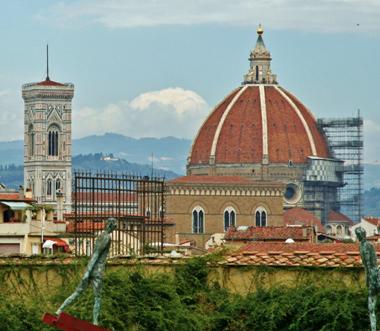
VilNews has over the latest weeks invited its readers to visit 26 European countries. Some articles dwelt with history. Some with Lithuanian contact points in various countries. I have travelled across Europe with camera and notepad for nearly 40 years and hope you enjoyed seeing and reading about some of my experiences.
Tour guide, writer and photographer:
Aage Myhre, VilNews editor-in-chief
aage.myhre@VilNews.com
Click on the below pictures or headlines
to read the articles and see the photos.
1. Exploring Europe
The more I travel around the world the more I realise that I am European. Although I have good, close friends and have experienced extraordinary things in all corners of the world. Maybe my mind is not sufficiently exotic. That's ok. I have grown older now. Driving a car is the best way to experience Europe.
Lithuania's border crossings to Latvia and Poland are no longer problematic. Within a day's drive you can reach most of the northern and central European countries. One more day and you can already stand and look out over the warm, slow waves of the Mediterranean Sea...
2. Switzerland and Italy
• The best known Lithuanian politician in Europebefore 1916 lived here in Switzerland
• Vilnius, Milan and Florence:
The world’s three Renaissance Capitals
• Venice shows me that architecture first of all is about life
• Santa Claus and a Lithuanian Grand Duchess are buried in
the same South Italian cathedral
3. Along the Riviera –
Italy, Monaco, France, Spain
• Grasse (the world’s perfume capital)
and a Lithuanian designer
• A VILLAGE IN LANGUEDOC, SOUTHERN FRANCE:
Jesus, Mary Magdalene, the “da Vinci Code”, “the Holy
Grail” and Vilnius University Library
• A good fish meal in Spain or Italy is often made in Lithuania
4. Alsace, Benelux, England
• The European Parliament is situated in Strasbourg.The Lithuanian members are there for YOU!
• Want to get a taste of Alsace in Vilnius?
• Erasmus of Rotterdam (1466 – 1536) is quoted as stating:
“I congratulate this nation [Lithuania] which now, in
sciences, jurisprudence, morals, and religion, and in all that
separates us from barbarism, is so flourishing that it can
rival the first and most glorious of nations.”
• Manchester hosts the oldest Lithuanian club in the UK
• The Beatles was discovered and managed by a Lithuanian Jew
5. Austria and Germany
• Sigmund Freud was a “Lithuanian Jew”• Linz represents the golden age of
Austrian – Lithuanian relations
• The Lithuanian school in Germany
• Vilnius was granted Magdeburg Rights in 1387
• The name LITHUANIA was first mentioned in the
Annals from Quedlinburg Abbey in year 1009
• Lithuanian war refugees in Germany after World War II
6. Scandinavia and Finland
• Lithuania, please look to Norway!• A Danish king came to Palanga in year 1161,
but he was no tourist
• A power bridge to Sweden is now under construction
• Why didn’t the Baltic States fight like Finland did in WWII?
7. Poland, Czech Republic,
Slovakia, Hungary
Pact countries
• The never-ending Polish – Lithuanian neighbour dispute
• My choice is Prague and Václav Havel
• The Hungarian language has Finnish-Siberian origin!
• Stephen Báthory, the Hungarian
who became Lithuania’s Grand Duke
• Lithuanian Panemunė Castle was built by
a Hungarian nobleman in the early 1600s
8. European Russia
• To Siberia – probably the only oneever going there voluntary, without a visa
• I got a visa to the USSR, 7 months
after the country had ceased to exist …
• A Viking was the first Russian ruler
• 43 Russian Orthodox churches in Lithuania
• Lithuania's 'Russian' Presidential Palace
was also used by Napoleon Bonaparte
• Russia and the Baltic States are nearest neighbours,
but not always best friends
• Lithuania and the Soviet Union 1939 – 1940
• Letters from Lithuanians deported to Siberia
9. Hanseatic Estonia, Latvia, Lithuania
• The Hanseatic League controlled trade and commerceat the Baltic Sea during 400 years
• Tallinn – the medieval 'Danish town’ that
introduced the Christmas tree to the world
• Riga – the Hanseatic city that became
the world's leading Art Nouveau Centre
• Klaipeda – Lithuania's 'German' port city,
with the best Baltic Sea beaches nearby
• Kaunas – the Hanseatic
trading point at the Nemunas River
10. Turkey, where Europe meets Asia
• “Peace in the homeland, peace in the world”Mustafa Kemal Atatürk (1881-1938)
• The Vikings arrived in Istanbul in year 860,
stayed there for 344 years, till 1204
• ISTANBUL: Water and land hand in hand
• In 1430 the Grand Duchy of Lithuania and the
Ottoman Empire were Europe’s leading countries
• Galatia, in the centre of today’s Turkey, was a
Biblical land of Celts from Ireland and Britain
• I can still easily study the pine-clad Taurus Mountains,
sloping down towards the sparkling clear Mediterranean Sea
- Bookmark :
- Digg
- del.icio.us
- Stumbleupon
- Redit it
- Posted by - (0) Comment
Lithuania’s 3 nightmares
By Kestutis Eidukonis, VilNews CEO
At the beginning of this month, I had the great privilege of representing the PLB (World Lithuanian Community) in its bi-annual meeting with members of the Seimas (Parliament). This joint commission meets twice a year and consists of ten members elected by the World Lithuanian Community and ten members of the Seimas, one from each party. The commission has two co-chairs one from the PLB and one from the Seimas. The co-chair from the PLB was Dr. Jonas Prunskis and the co-chair from the Seimas was Ona Valiukevičiūte.
The areas of debate and concern for the commission were:
- Bookmark :
- Digg
- del.icio.us
- Stumbleupon
- Redit it
- Posted by - (0) Comment
An American growing
up in SIBERIA
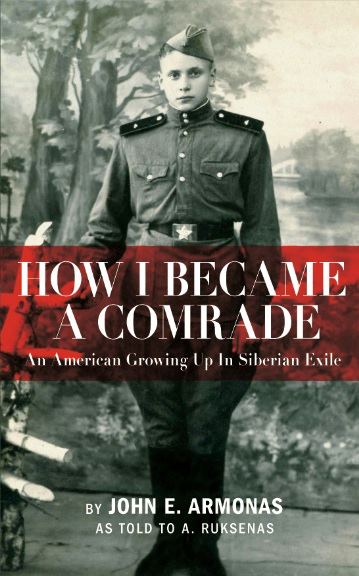
NEW BOOK: "How I Became A Comrade:
An American Growing Up In Siberian Exile" by John E. Armonas
as told to Algis Ruksenas, is NOW AVAILABLE thru Amazon.com.
An American child deported with his mother to Siberia, torn from her when she is given additional punishment at hard labor in the notorious GULAG, is raised as a Soviet in order to survive.
John Armonas was a U.S. citizen, but had been left behind when his American-born father and five-year old sister, Donna, were urged to leave Lithuania back for the United States, after the Soviets first occupied Lithuania in 1940. His mother Barbara, a native Lithuanian, was assured by American officials she could soon follow with nine-month old John, as soon as her immigration papers were expedited. Instead, they ended up in Siberia...
- Bookmark :
- Digg
- del.icio.us
- Stumbleupon
- Redit it
The strange phenomenon of Eurovision
- Posted by - (0) Comment
Eurovision for Lithuanians is like one more religion after basketball. Everybody has their opinion on everything: how the artist should look, how they should move on the stage, what the song should be, how it should be performed. The strangest thing is that with such a big group of experts, somehow we pick the wrong person every year.
Every year lots and lots of groups and single artists fills out applications to participate in the Eurovision song competition. Every year thousands of people are watching the National Finals to vote for the best song and finally win. And every year right after the results of the National Final the weirdness begins.
- Bookmark :
- Digg
- del.icio.us
- Stumbleupon
- Redit it
- Posted by - (0) Comment
Aage Myhre is
leaving Lithuania
Architect Aage Myhre, VilNews editor-in-chief,
interviewed by Ramunas Kontrimas, news2biz
www.news2biz.com
ramunas@news2biz.com
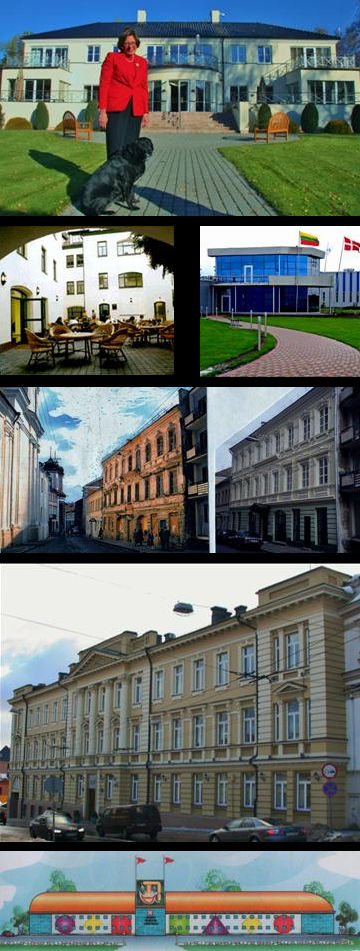
Some of architect Aage Myhre’s projects in Lithuania
over the last 20 years.
Aage Myhre, 60, is the Norwegian architect, journalist, publisher whose community building skills have made him a small expat phenomenon in Vilnius. He is about to return to his home country after twenty two years in Vilnius, taking along his Lithuanian spouse and two daughters, but leaving his other object of admiration, Vilnius' Old Town, behind.
news2biz met Aage to ask him to reflect on his Lithuanian stay that lasted much long than he expected.
- Bookmark :
- Digg
- del.icio.us
- Stumbleupon
- Redit it
- Posted by - (0) Comment
Vilnius International Club (VIC) elected new board in a member meeting a few days ago. Andrius Koncius is new chairman, Amelija Rudenko is new vice chairman, and Rugile Sablinskaite is new director and executive director of the club. VIC is now in its thirteenth year as an active, dynamic meeting place and discussion forum for Lithuania’s international community.
- Bookmark :
- Digg
- del.icio.us
- Stumbleupon
- Redit it
- Posted by - (7) Comment
Two new
VilNews editors!
Today, we are pleased to announce that VilNews has got two new skilled Associate Editors, Dalia Cidzikaite and Daiva Repečkaitė. We can say with certainty that they are going to mean a lot for our worldwide, online e-publication and the accompanying wonderful network of global readers with Lithuania in their hearts. Please welcome them! See also our Section 2 and Section 3.
Associate Editor
DALIA CIDZIKAITE
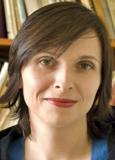 Dalia is the former editor in chief of the Chicago-based Lithuanian newspaper Draugas. She holds a PhD from the University of Illinois at Chicago. She is the board member of the journal Lituanus, Santara-Šviesa Federation, also the member of the Lithuanian American Community, Inc. Archives Committee and Association for the Advancement of Baltic Studies. Dalia is the author of a book The Other in Lithuanian Prose (Vilnius: Lietuvių literatūros ir tautosakos institutas, 2007). She was born
Dalia is the former editor in chief of the Chicago-based Lithuanian newspaper Draugas. She holds a PhD from the University of Illinois at Chicago. She is the board member of the journal Lituanus, Santara-Šviesa Federation, also the member of the Lithuanian American Community, Inc. Archives Committee and Association for the Advancement of Baltic Studies. Dalia is the author of a book The Other in Lithuanian Prose (Vilnius: Lietuvių literatūros ir tautosakos institutas, 2007). She was born
and grew up in Vilnius.
dalia.cidzikaite@VilNews.com
Associate Editor
DAIVA REPEČKAITĖ
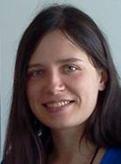 Daiva is a former journalist of Atgimimas weekly, the Baltic correspondent of the Equal Times, and a freelance reporter. She has published articles in IQ magazine, news sites Delfi, lrytas.lt and Bernardinai.lt, as well as Cafe Babel, Göteborgske Spionen and Grads.co.uk. In 2008 she won the European Young Journalist Award "Enlarge your vision" in the Lithuanian language category and later was awarded a Japan Foundation grant for young researchers and journalists. In addition to Lithuanian and English, she speaks German, Russian and Hebrew, as well as some Swedish, French and Japanese.
Daiva is a former journalist of Atgimimas weekly, the Baltic correspondent of the Equal Times, and a freelance reporter. She has published articles in IQ magazine, news sites Delfi, lrytas.lt and Bernardinai.lt, as well as Cafe Babel, Göteborgske Spionen and Grads.co.uk. In 2008 she won the European Young Journalist Award "Enlarge your vision" in the Lithuanian language category and later was awarded a Japan Foundation grant for young researchers and journalists. In addition to Lithuanian and English, she speaks German, Russian and Hebrew, as well as some Swedish, French and Japanese.
daiva.repeckaite@VilNews.com
- Bookmark :
- Digg
- del.icio.us
- Stumbleupon
- Redit it
- Posted by - (0) Comment
Healing the heart and
soul of Lithuania
By Ida Hardy, Texas, USA
Lithuania is my mother’s country. She escaped with her mother and sisters as a young child and at one point in her life she wanted to return. It seemed to me that she heard the whispers from the wind in the forests and they were calling her home. My mother taught us a little about the folk tales and the music. She taught us to meditate and a little bit about yoga and I wanted to learn more about her childhood home. But the Soviets were still reigning and it was impossible for us to go. Later, as we cried on the phone on that day in 1991 I asked her if she would like to return and she said, “You can never go back. Things are changed so much.”
Her message was about more than the structure of her home and the murder of her father. She was really talking about the broken spirits of all the people who were victims, those who were aggressors, and those who were both. There is no going back. No one can undo the evil that has taken place anywhere on the planet throughout time.
 I’m a yoga teacher and natural health practitioner. I learned much of what I know from my mother, and everything else I learned at University. University may have offered more details but I think it all simply confirmed everything she taught about keeping the body healthy. Probably what every mother teaches.
I’m a yoga teacher and natural health practitioner. I learned much of what I know from my mother, and everything else I learned at University. University may have offered more details but I think it all simply confirmed everything she taught about keeping the body healthy. Probably what every mother teaches.- Bookmark :
- Digg
- del.icio.us
- Stumbleupon
- Redit it
- Posted by - (0) Comment
International Lithuania
meets in Old Town!
Last Friday the summer season opened here in Vilnius Old Town, for many pleasant encounters between Lithuanians and Lithuanian-related people from all over the world! Amatininku Užeiga (The Craftsmen's Tavern) on the corner of Rotušės aikštė (Town Hall Square) and Stiklių street was the place where we met – representatives of the World Lithuanian Community, Vilnius International Club and VilNews – this warm, velvet soft early summer evening. Amazing night! Wonderful people!
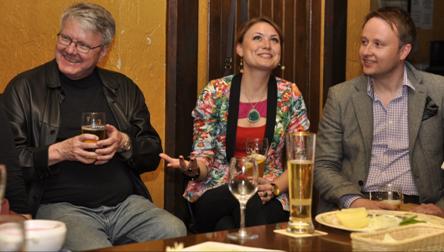
- Bookmark :
- Digg
- del.icio.us
- Stumbleupon
- Redit it
- Posted by - (0) Comment
Lithuanian genius artist
Marija T. Rožanskaitė
I attended an amazing gallery tour by Laima Kreivytė, the curator of the exhibition of Marija Teresė Rožanskaitė’s work. I had seen some works by Rožanskaitė at the National Gallery of Art earlier, and I thought that she was among the most interesting Lithuanian artists of all times, but the current exhibition gives a full picture of her genius. Rožanskaitė (1933-2007) started her career under Soviet censorship, when artistic expression was carefully monitored and abstract art was treated unfavorably. However, her ‘progressive’ topics (modern medicine, space exploration and industrial cities) allowed her to get through the censorship. However, being a child of political prisoners and a progressive artist, she was largely ignored in the USSR. When Lithuania became independent, the artist continued producing innovative art, creating spatial assemblages and installations, addressing ecological and political topics, adored by the young generation. And yet I never studied about her work at art history lessons, and I heard nothing about her death in 2007 from the mainstream press. It’s a typical way to treat women artists.
- Bookmark :
- Digg
- del.icio.us
- Stumbleupon
- Redit it
- Posted by - (0) Comment
Can good come
from selfishness?

During a trip to Lithuania a few years ago, Boris went to the North Lithuanian city of Siauliai to see his grandmother’s sister before she died. At 97 she was the oldest surviving member of his family.
By Boris Vytautas Bakunas
I want to tell you a true story. During a trip to Lithuania a few years ago, I drove to the city of Siauliai to see my grandmother’s sister before she died. At 97 she was the oldest surviving member of my family.
My reason for visiting her was not only selfish, but it was based on an illusion. By meeting her, I believed that I could reconnect in some mysterious way with my grandmother whom I had loved very much. My motive was selfish because I visited the old woman so I could feel good. I did it for me, not for her.
I didn’t really expect any reaction greater than customary courtesy and perhaps even mild interest. Was I surprised!
When I entered the small cottage where she lived with her daughter and her son-in-law, I saw a table decked with delicacies, juice, brandy, and beer. A bright red candle had been lit in my honor. The room was so small that we had to huddle closely together around the table. My great aunt and my cousin sat beside me.
- Bookmark :
- Digg
- del.icio.us
- Stumbleupon
- Redit it
- Posted by - (0) Comment
LITHUANIA’S BEST RESTAURANTS
TripAdvisor chooses Druskos Namai
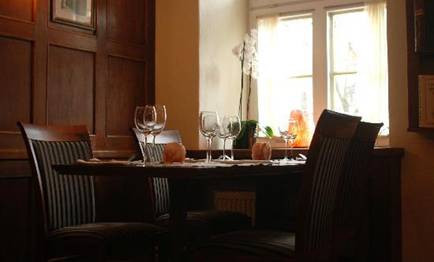
TripAdvisor.com has selected Lithuania’s best restaurants.
Druskos Namai in Užupis, Vilnius, tops the list!
TripAdvisor is a travel website that assists customers in gathering travel information, posting reviews and opinions of travel related content and engaging in interactive travel forums. TripAdvisor was an early adopter of user-generated content. The website services are free to users, who provide most of the content, and the website is supported by an advertising business model.
THE DRUSKOS NAMAI PHILOSOPHY
We prepare our food in accordance with the principles of modern European cuisine using the best quality Lithuanian products.Preference is given to products supplied by farms located close to Vilnius. Menu changes often - dishes of depends on what kind of fresh produce on a daily basis we receive from manufacturers and what's available at the time of the year.
- Bookmark :
- Digg
- del.icio.us
- Stumbleupon
- Redit it
- Posted by - (0) Comment
King of Lithuania?
Prince Inigo von Urach is ready!
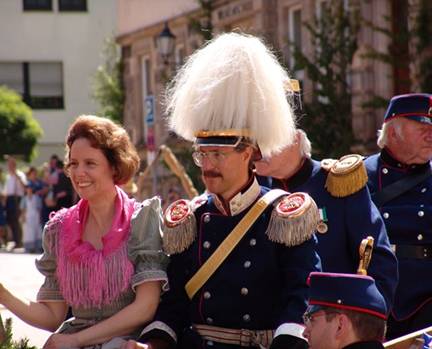
Prince Inigo of Urach, born 12 April 1962, with his wife –
Daniela Freiin von und zu Bodman, born 28 August 1963.
By Liudvikas Jakavičius-Grimalauskas
I am monarchist and I love to write about monarchy and nobility. I know that monarchy is not a topic that all people like, and that lot of people don’t want that monarchy returns to Lithuania. Personally, I think monarchy is the best form of government. If you research, 95% of the world monarchies are developed countries. But I respect all points of view, and also I can said that even if I prefer a monarchy to a republic, I am very satisfied with the work that our politicians have done, and I am very satisfied with the direction of our country. But, why do I think that this topic can be interesting for all Lithuanians? Because whether you like monarchy or not, this is part of our history, and Lithuanians like culture. So some people will like my points of views, and Prince Inigo von Urach views, and some will not. But the historical side of the article should be interesting for the majority of Lithuanians, whether they like monarchy or not.
Today Lithuania is a modern and dynamic North European nation of high technologies and innovations, with the second fastest growing economy in the European Union. But the territory that belongs to Lithuania has a large and old tradition as a Monarchy, tracing its political origins to 1219 as an independent Grand Duchy (The Grand Duchy of Lithuania), created by Mindaugas, a warrior who unified the territories that he conquered, proclaiming himself Grand Duke of Lithuania.
- Bookmark :
- Digg
- del.icio.us
- Stumbleupon
- Redit it

The Seal of King Mindaugas (1203-1263, reign 1251-1263) is a medieval
seal affixed to the October 1255 act by Mindaugas, King of Lithuania,
granting Selonia to the Teutonic Knights.
Historically, The Kingdom of Lithuania is rooted in the 13th Century when Mindaugas was crowned by Pope Innocent IV as King of Lithuania. Over the next five hundred years the storms of war and politics rendered its toll. Expansion and alliances with Poland and other nations, were not strong enough to keep the transformed Grand Duchy of Lithuania independent. In 1795 it was all but consumed by Russia.
After two centuries, in 1918 the strong will of the Lithuanian people gained independent statehood but this was also short lived. Twenty years of autonomy again ended with Russian and Nazi occupation.
Today’s Republic of Lithuania declared Independence (again) as a parliamentary democracy on March 11, 1990 and was internationally recognized in September 1991.
After the Freedom Declaration in 1918, there were many who wanted the monarchy reinstated in Lithuania. In 1990-1991 there was hardly anyone who dared to come up with such an idea. But today more and more people want attention to Lithuania's proud, royal history, and many believe the royal idea and past has wrongfully been swept under the rug ...
Here are some interesting articles, absolutely worth reading!
The trampling of Lithuania’s history
Restoring Lithuania's Royal Titles
Official site of His Imperial Majesty King Roman
King Roman of Lithuania sells titles from his house
- Bookmark :
- Digg
- del.icio.us
- Stumbleupon
- Redit it
VilNews e-magazine is published in Vilnius, Lithuania. Editor-in-Chief: Mr. Aage Myhre. Inquires to the editors: editor@VilNews.com.
Code of Ethics: See Section 2 – about VilNews. VilNews is not responsible for content on external links/web pages.
HOW TO ADVERTISE IN VILNEWS.
All content is copyrighted © 2011. UAB ‘VilNews’.

 Click on the buttons to open and read each of VilNews' 18 sub-sections
Click on the buttons to open and read each of VilNews' 18 sub-sections 

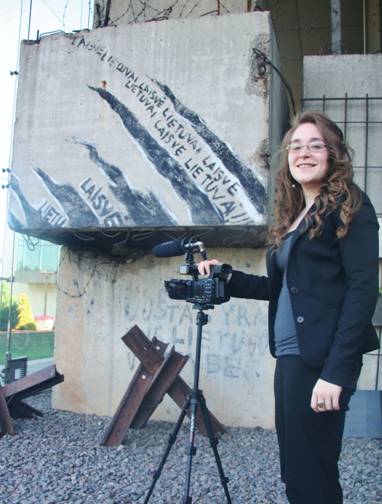

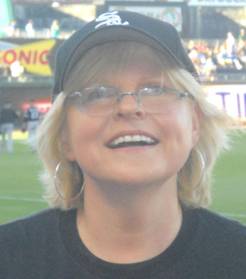

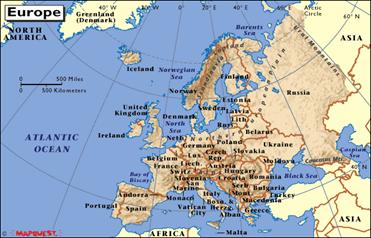
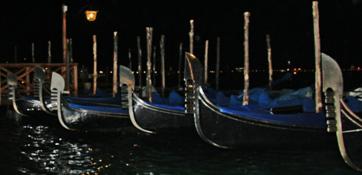
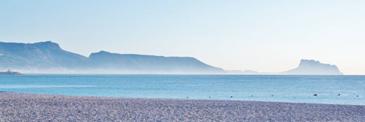

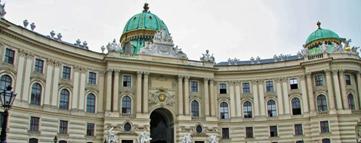
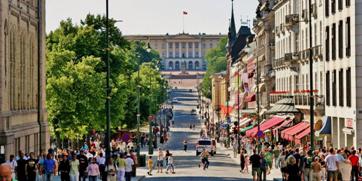
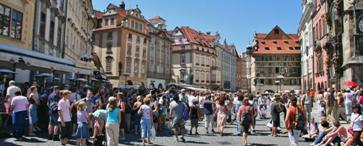
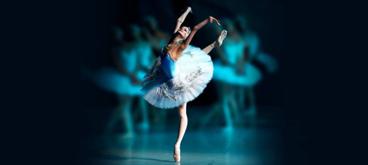
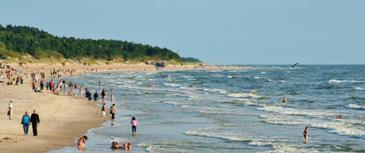
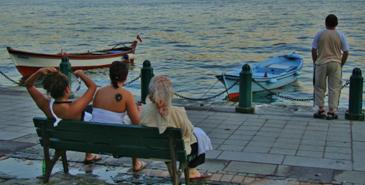




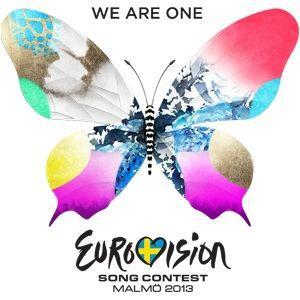
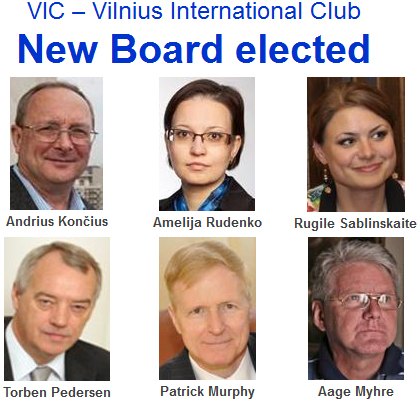
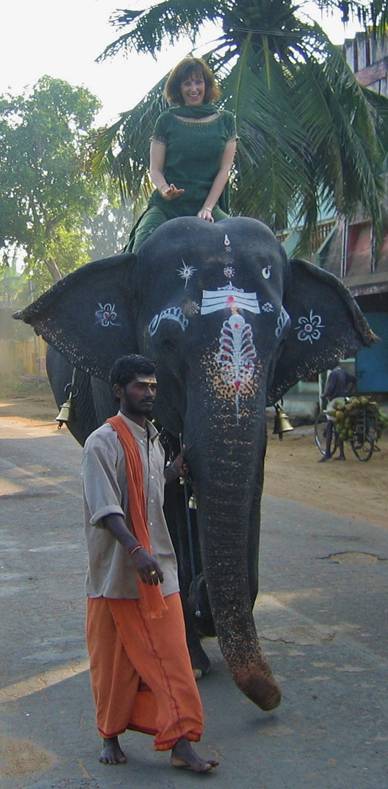

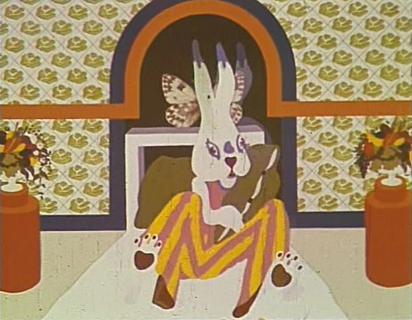









.jpg)



